Go docs
Golang-Syd, Oct 17, 2012
Rob Pike
Google, Inc.
Rob Pike
Google, Inc.
There are many ways to show documentation as text
3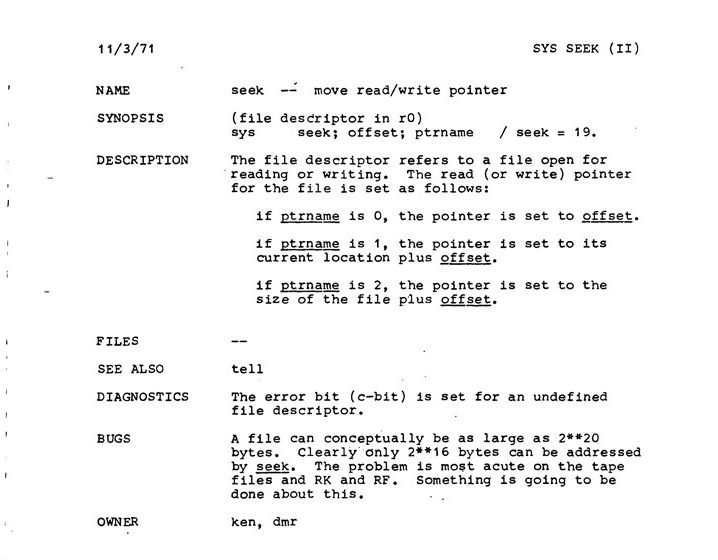
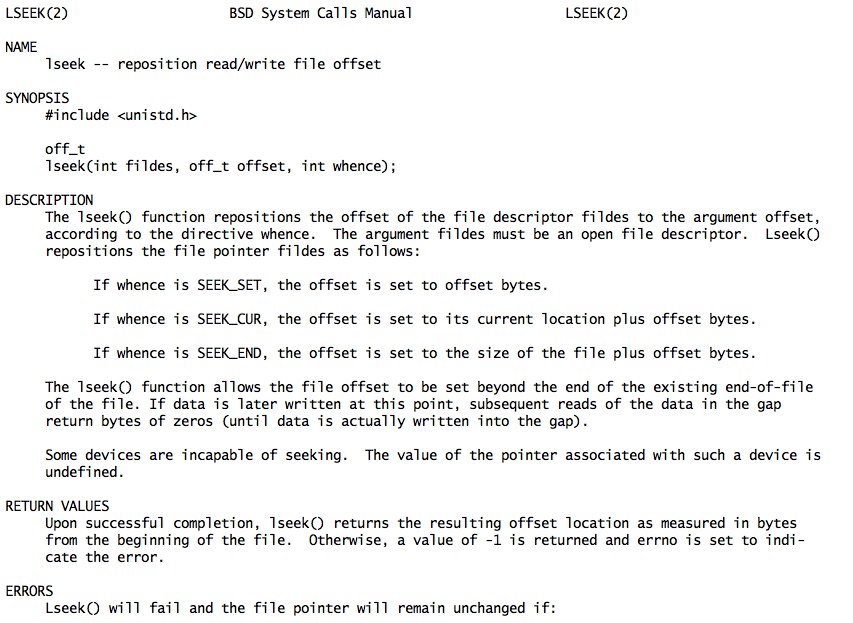
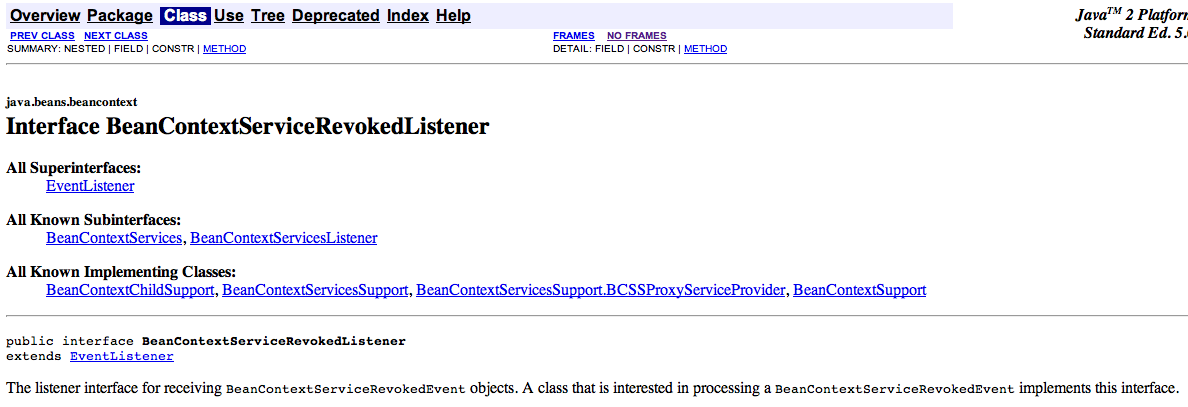
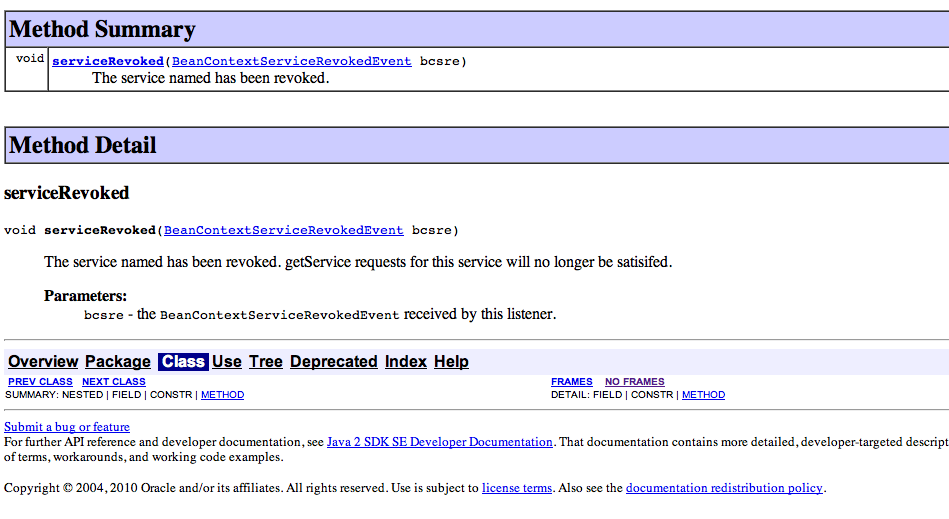
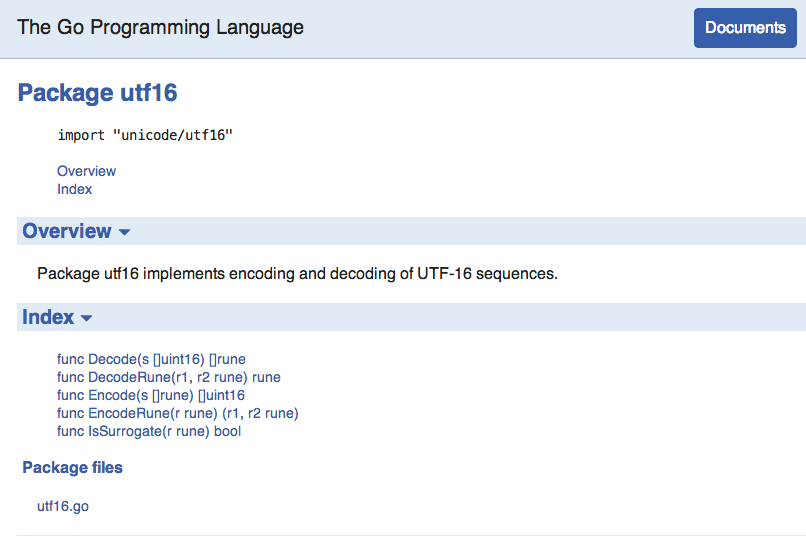
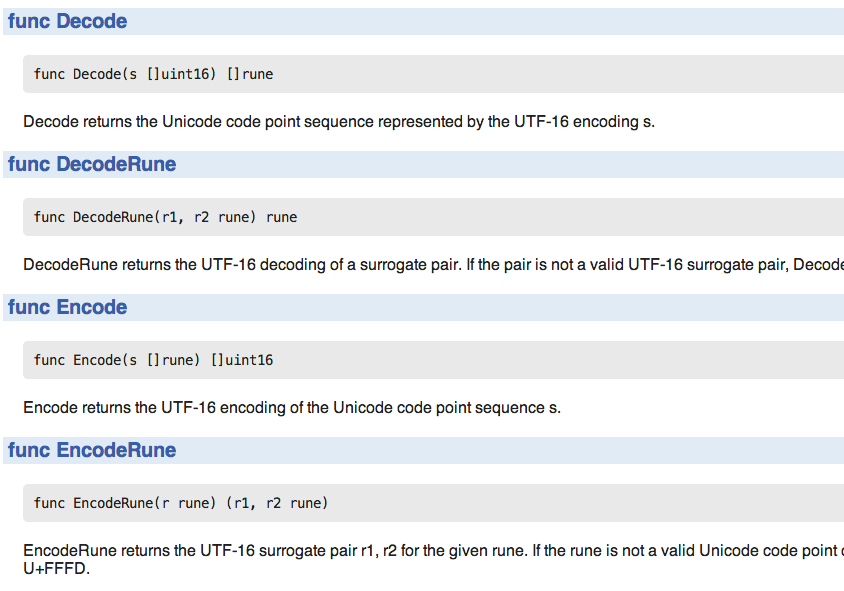

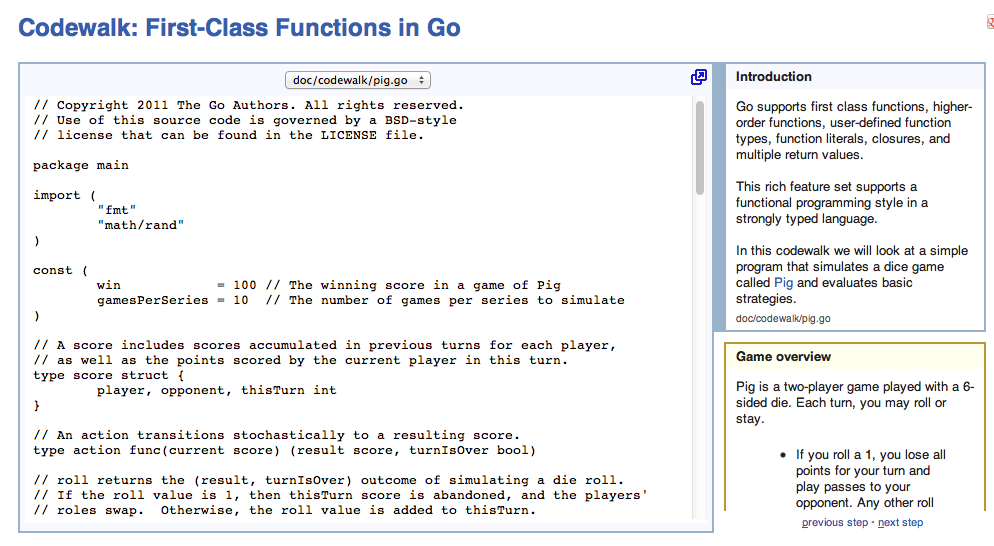
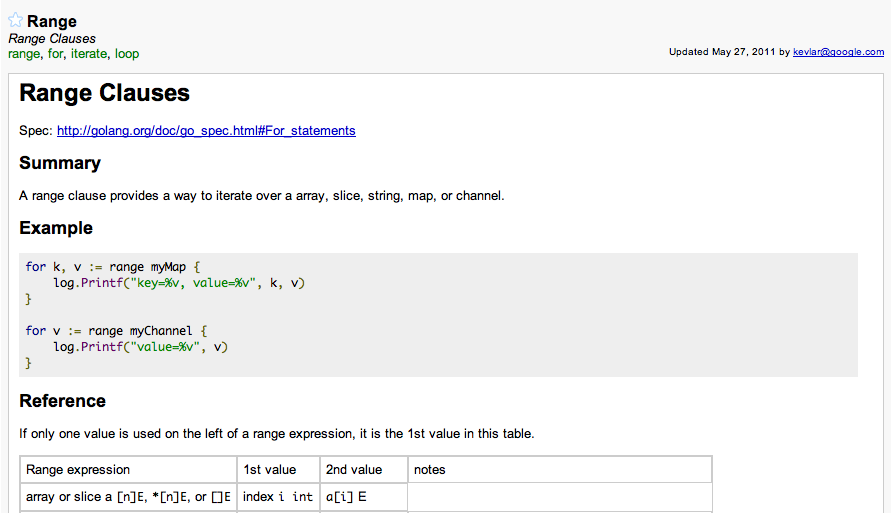

go.pkgdoc.org/code.google.com/p/goauth2/oauth
16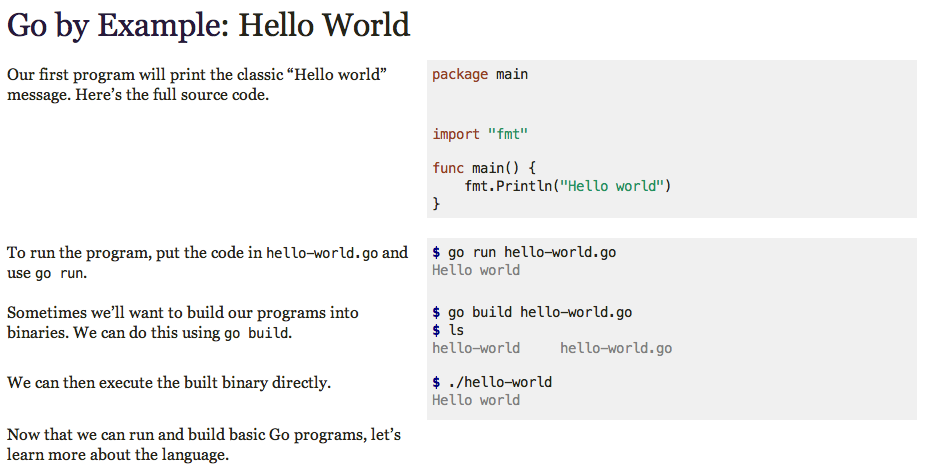
We give a lot of talks.
Most of the tools for presentations focus on style, not ease of creation.
20
In the go.talks repo, have a new tool: present.
go get code.google.com/p/go.talks/present
Took about an hour to put this talk together.
Docs:
go.pkgdoc.org/code.google.com/p/go.talks/present
21* Present In the `go.talks` repo, have a new tool: `present`. go get code.google.com/p/go.talks/present - Simple - Easy to use - Easy, smooth to present Took about an hour to put this talk together. Docs: .link http://go.pkgdoc.org/code.google.com/p/go.talks/present
* Input for the previous slide .code go-docs.slide /^\* Present$/,/^\.link/
* Input for the previous slide redux .code go-docs.slide /^\*.*previous/,/^\.code/
Lots of presentations, different styles.
25They all have code.
Can't execute the code!
Want to edit and play.
26
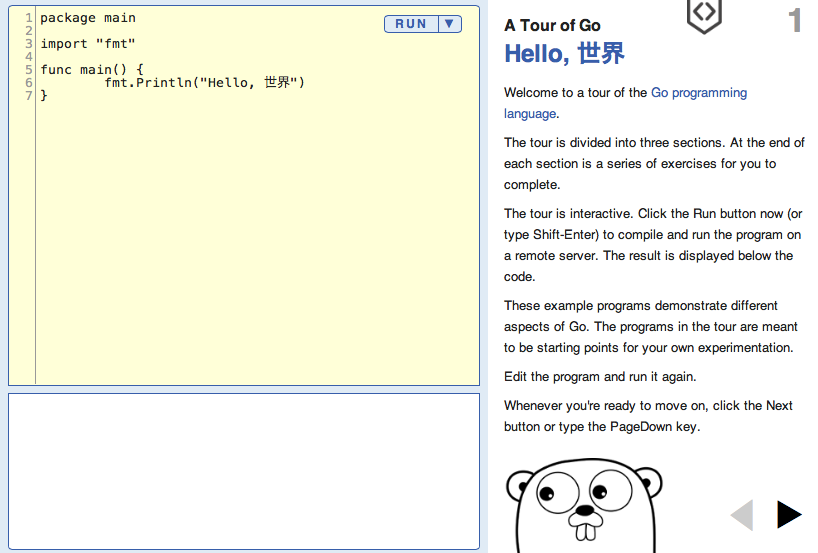
Want to embed the playground technology in the other media.
Triggering example: Go Concurrency Patterns, Google I/O, 2012
Needed to demonstrate concurrency and the passage of time.
31An extract from the talk.
32
These programs make Joe and Ann count in lockstep.
We can instead use a fan-in function to let whosoever is ready talk.
func fanIn(input1, input2 <-chan string) <-chan string { c := make(chan string) go func() { for { c <- <-input1 } }() go func() { for { c <- <-input2 } }() return c }
// +build ignore,OMIT
package main
import (
"fmt"
"math/rand"
"time"
)
func main() { c := fanIn(boring("Joe"), boring("Ann")) for i := 0; i < 10; i++ { fmt.Println(<-c) } fmt.Println("You're both boring; I'm leaving.") }
// START2 OMIT
func boring(msg string) <-chan string { // Returns receive-only channel of strings. // HL
c := make(chan string)
go func() { // We launch the goroutine from inside the function. // HL
for i := 0; ; i++ {
c <- fmt.Sprintf("%s: %d", msg, i)
time.Sleep(time.Duration(rand.Intn(2e3)) * time.Millisecond)
}
}()
return c // Return the channel to the caller. // HL
}
// STOP2 OMIT
// START3 OMIT
func fanIn(input1, input2 <-chan string) <-chan string { // HL
c := make(chan string)
go func() { for { c <- <-input1 } }() // HL
go func() { for { c <- <-input2 } }() // HL
return c
}
// STOP3 OMIT
Input for the previous slide:
* Multiplexing These programs make Joe and Ann count in lockstep. We can instead use a fan-in function to let whosoever is ready talk. .code go-docs/faninboring.go /START3/,/STOP3/ .play go-docs/faninboring.go /START1/,/STOP1/
package main
import (
"fmt"
"math/rand"
"time"
)
// START1 OMIT
func main() {
c := fanIn(boring("Joe"), boring("Ann")) // HL
for i := 0; i < 10; i++ {
fmt.Println(<-c) // HL
}
fmt.Println("You're both boring; I'm leaving.")
}
// STOP1 OMIT// START2 OMIT
func boring(msg string) <-chan string { // Returns receive-only channel of strings. // HL
c := make(chan string)
go func() { // We launch the goroutine from inside the function. // HL
for i := 0; ; i++ {
c <- fmt.Sprintf("%s: %d", msg, i)
time.Sleep(time.Duration(rand.Intn(2e3)) * time.Millisecond)
}
}()
return c // Return the channel to the caller. // HL
}
// STOP2 OMIT
// START3 OMIT
func fanIn(input1, input2 <-chan string) <-chan string { // HL
c := make(chan string)
go func() { for { c <- <-input1 } }() // HL
go func() { for { c <- <-input2 } }() // HL
return c
}
// STOP3 OMITThe input for the Multiplexing slide again:
* Multiplexing These programs make Joe and Ann count in lockstep. We can instead use a fan-in function to let whosoever is ready talk. .code go-docs/faninboring.go /START3/,/STOP3/ .play go-docs/faninboring.go /START1/,/STOP1/
These programs make Joe and Ann count in lockstep.
We can instead use a fan-in function to let whosoever is ready talk.
func fanIn(input1, input2 <-chan string) <-chan string { c := make(chan string) go func() { for { c <- <-input1 } }() go func() { for { c <- <-input2 } }() return c }
// +build ignore,OMIT
package main
import (
"fmt"
"math/rand"
"time"
)
func main() { c := fanIn(boring("Joe"), boring("Ann")) for i := 0; i < 10; i++ { fmt.Println(<-c) } fmt.Println("You're both boring; I'm leaving.") }
// START2 OMIT
func boring(msg string) <-chan string { // Returns receive-only channel of strings. // HL
c := make(chan string)
go func() { // We launch the goroutine from inside the function. // HL
for i := 0; ; i++ {
c <- fmt.Sprintf("%s: %d", msg, i)
time.Sleep(time.Duration(rand.Intn(2e3)) * time.Millisecond)
}
}()
return c // Return the channel to the caller. // HL
}
// STOP2 OMIT
// START3 OMIT
func fanIn(input1, input2 <-chan string) <-chan string { // HL
c := make(chan string)
go func() { for { c <- <-input1 } }() // HL
go func() { for { c <- <-input2 } }() // HL
return c
}
// STOP3 OMIT
Deploy executable examples throughout:
go.dev/pkg/strings/#example_Contains
40